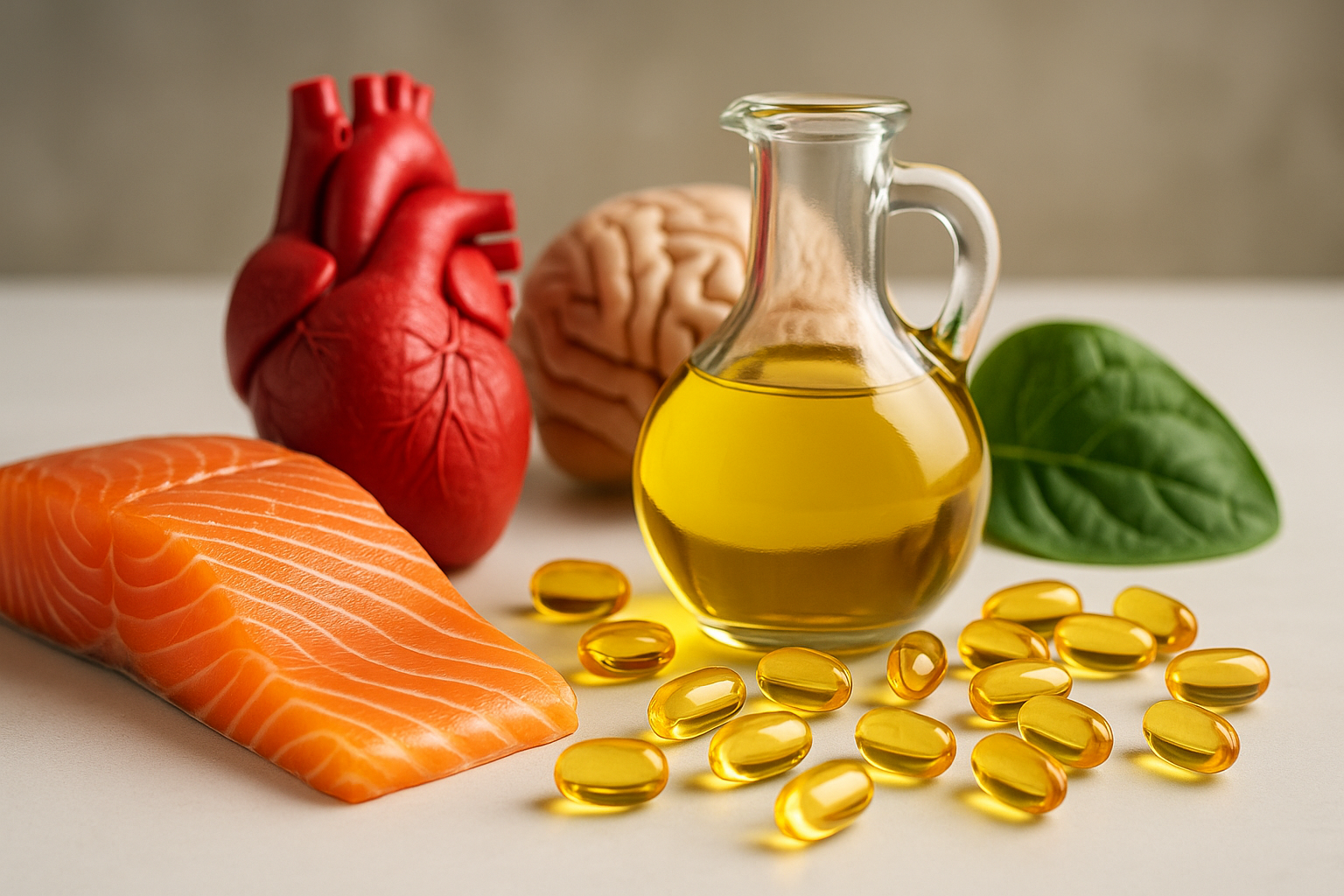
There is growing scientific evidence that fructose can cause a number of chronic diseases and is toxic to the liver. A little sugar is not a problem, but a lot of sugar kills, albeit slowly. The problem is: it is very difficult for us to avoid sugar consumption, because the food industry literally floods us with it. So it is important to reduce sugar consumption as much as possible through a comprehensive change in diet. Natural vital substances can also help to support healthy insulin levels.
"Sweets for my sweet, sugar for my honey / Your first sweet kiss thrilled me so / Sweets for my sweet, sugar for my honey / I'll never ever let you go": These lines were sung by the US band The Drifters in 1961, and the song "Sweets for My Sweet" went around the world very successfully. Would sweets and sugar still be emphasised in this way today? Would this light-heartedness and lightness still be possible - with this now very difficult subject? Because we know that sugar does not have much of this lightness. Quite the opposite: it is considered the main cause of obesity, diabetes and cardiovascular diseases.
This has been scientifically proven in detail. Scientists at the University of California, for example, claim that sugar can make people just as addicted as alcohol or cigarettes. That is why they are looking for ideas to limit the consumption of sugar and want to have it controlled as strictly as alcohol and tobacco. There is more and more scientific evidence that fructose can cause a number of chronic diseases and is toxic to the liver. A little sugar is not a problem, but a lot of sugar kills, albeit slowly.
Danger of sugar as high as from alcohol
The medical background according to a report of the platform "World of Food": "Fructose is added to many processed foods today. Corn syrup in particular contains the processed sugar that is added to soft drinks from the USA as a high-calorie sweetener. Since the fructose-glucose mixture, which interferes with insulin metabolism, is consumed heavily by Americans and Europeans, Californian doctors fear an increase in lipid metabolism disorders, liver damage, diabetes, obesity, high blood pressure and heart attacks. For them, the danger of sugar is thus comparable to the health damage caused by alcohol."
New European research has also found that too much sugar consumption leads to lower intake of vitamins and minerals in the daily diet. The problem with this is that our foods often seem to be true sugar bombs. Statistically, every German consumes a total of 34 kilograms of household sugar alone per year. On top of that, there is honey and added sugar in the form of syrup, glucose and fructose in juices and canned fruit, for example. That's another ten kilos a year. Germans thus consume an average of 90 grams of sugar per day, which is three times as much as recommended by the World Health Organization (WHO).
Many studies have shown that added sugar is found in two-thirds of all food products, even in baby food. Sugar and sweetening ingredients are still found in products such as baby tea and children's milk, even though in 2018 the Minister of Food, Julia Klöckner, announced in the media that a ban would be introduced in 2019. Whether this is related to the strong lobbying of the big food companies would be pure speculation. But this much is certain: in 2016, the EU Commission even wanted to allow up to three times as much sugar as recommended by the WHO.
Too much sugar as a reason for diabetes
A huge problem is the promotion of dangerous diabetes through too much sugar consumption. The number of diabetes cases is increasing in all age groups. Six million German citizens of adult age were already affected a few years ago. By 2030, the Robert Koch Institute expects an increase to eight million. According to a WHO report, around 422 million people worldwide now suffer from diabetes.
The German Nutrition Society (Deutsche Gesellschaft für Ernährung e. V.), for example, writes: "In the genesis of type 2 diabetes, the excessive consumption of sugar (mono- and disaccharides) is repeatedly considered as a risk factor. A direct effect of mono- and disaccharides on the development of diabetes is discussed, but also an indirect effect by promoting overweight/obesity. A significant role is suspected for sugar-sweetened beverages in this context." The number of people with type 2 diabetes mellitus in this country is increasing by five per cent annually. The main reason for this is the unfavourable western lifestyle with an unbalanced diet and lack of exercise, which promotes the development of overweight and obesity, says the recognised organisation.
Blood vessels can stick together due to high blood sugar levels
Most importantly, the German Nutrition Society refers to the fact that there is a strong correlation between weight history and diabetes risk. "A strong weight gain in early adulthood (between 25-40 years) correlated more strongly with the risk of type 2 diabetes in both men and women than a strong weight gain in later life (between 40-55 years) with a stable BMI in younger years. For men, the risk of developing type 2 diabetes was 1.5 times higher, for women even 4.3 times higher." At the same time, more and more studies speak of the development of overweight due to sugar with a subsequent increase in the risk of diabetes.
By the way, if the blood sugar level is constantly too high, the blood vessels stick together, which greatly increases the risk of heart attacks and strokes. Protein structures can also stick together and lose their ability to function. The protein structure is enormously important for the function of the protein. A defective protein structure can lead to the loss of the original protein function. In addition, a permanently high insulin level caused by excessive sugar consumption can lead to insulin resistance. This occurs when the body's cells eventually become deadened to the insulin signal and no longer let in sugar. The sugar then concentrates in the blood, which can lead to dangerous diseases - clogged veins, dead nerves and damaged eyes and kidneys say hello!
Industry sugars up the modern diet
The problem is: it is very difficult for us to avoid sugar consumption because the food industry literally floods us with it. Nowadays, they add sugar to three out of four products and thus sugarify the modern diet. So the sugar trap snaps shut early in the morning, because the supposedly healthy cornflakes contain lots of sugar. Ready-to-eat muesli, for example, sometimes consists of a quarter sugar. And there is no question that soft drinks, crisps and the like are real sugar bombs. One litre of cola contains the equivalent of 35 cubes of sugar! It is probably obvious that no one would just eat 35 cubes of sugar - in a cold drink, on the other hand, they are well hidden and thus in the vast majority of cases consumed as a sweet stimulant almost unconsciously. And bread, meat products, yoghurt and dairy products and almost all ready-made products also contain huge amounts of sugar.
So is there anything we can do about sugar consumption? Of course, by radically changing our diet, avoiding convenience foods and obviously sweetened foods and consisting mainly of healthy fruits and vegetables, we can declare war on sugar and its harmful effects on health.
It is also possible to support healthy insulin levels through certain natural vital substances. An example of this is the plant Gurmar (Gymnema Sylvestre). This is a perennial woody vine native to tropical Asia, China, the Arabian Peninsula, Africa and Australia. It has been used in Ayurvedic medicine and is considered a "sugar destroyer" in India. The leaves and extracts contain gymnemic acids, the main bioactive constituents that interact with taste receptors on the tongue to temporarily suppress the taste of sweetness from sugar, stevia, xylitol and artificial sweeteners such as aspartame. In general, the plant is said to positively support healthy blood sugar levels and pancreas. In Ayurvedic medicine, the plant is even used for type 2 diabetes. Natural substances such as garlic, chaga mushroom, cinnamon, fenugreek, L-carnitine, knotweed and bladderwrack, bitter melon, chromium, chilli, ginger and many more are also suitable for supporting our fight against sugar and its harmful effects.
This means: The possibilities are very good to protect the body from sugar and its consequences. We just have to do it and realise how high the gain in quality of life and health can be!
* This text may contain translation errors as the translation was performed by an online translation tool.










